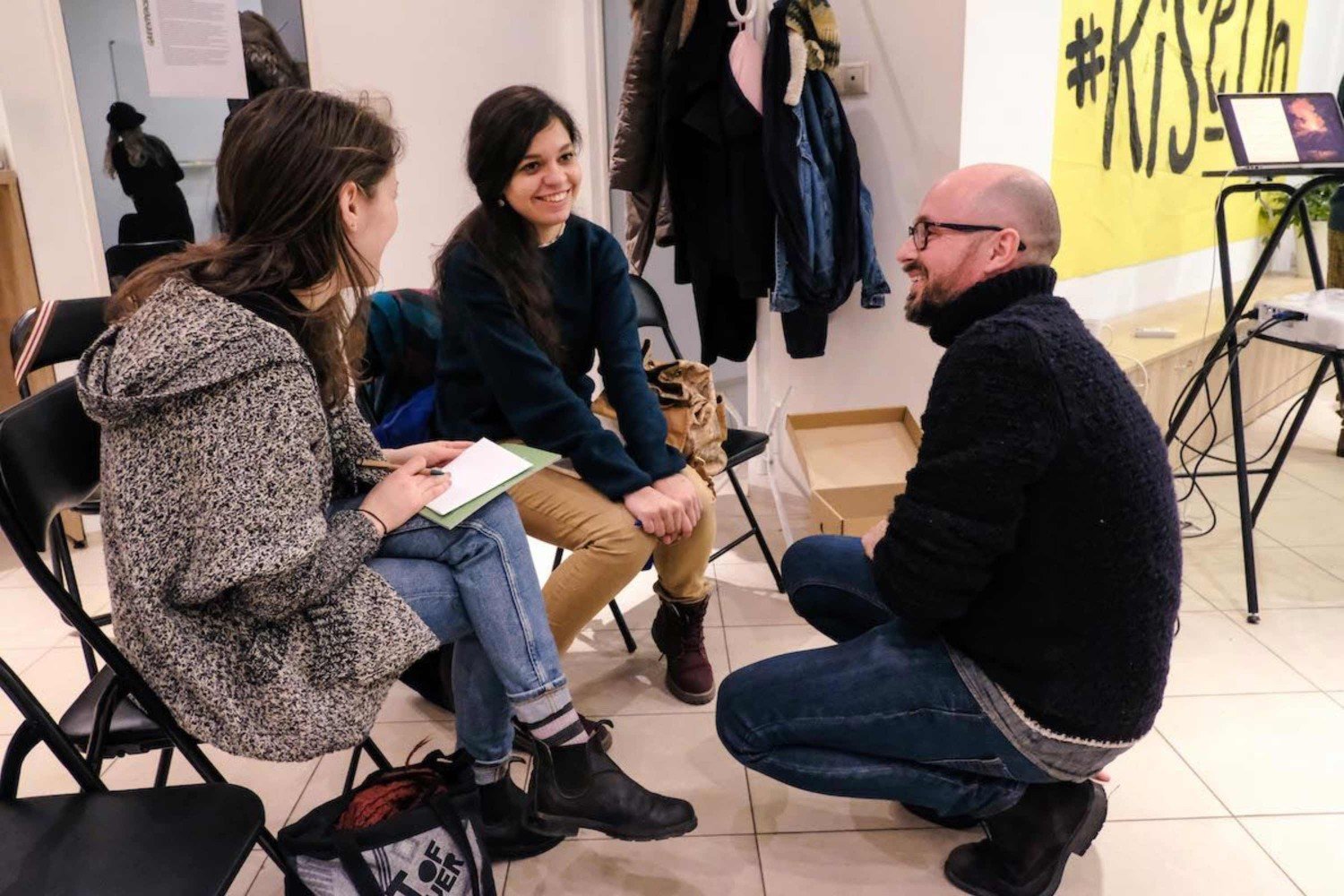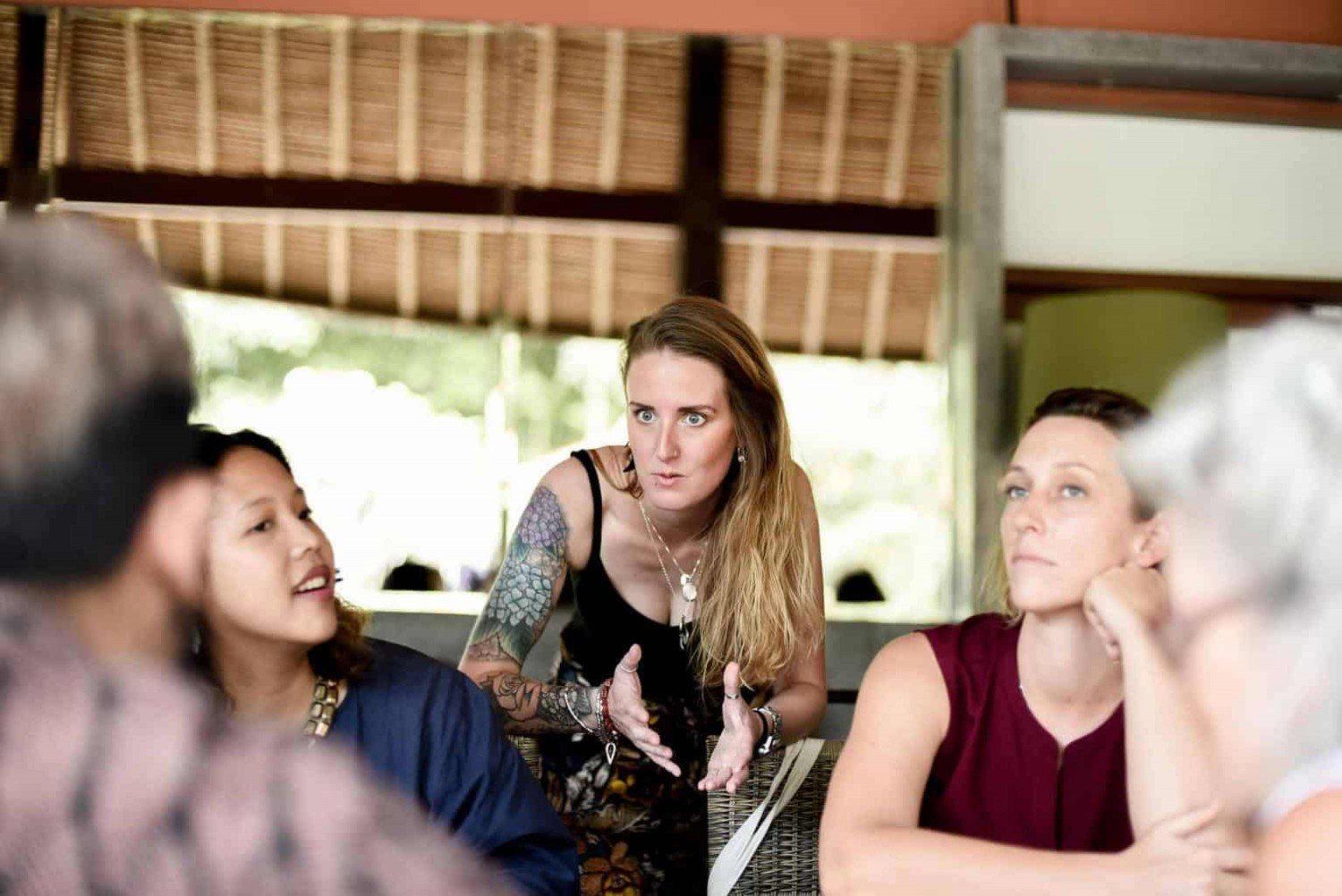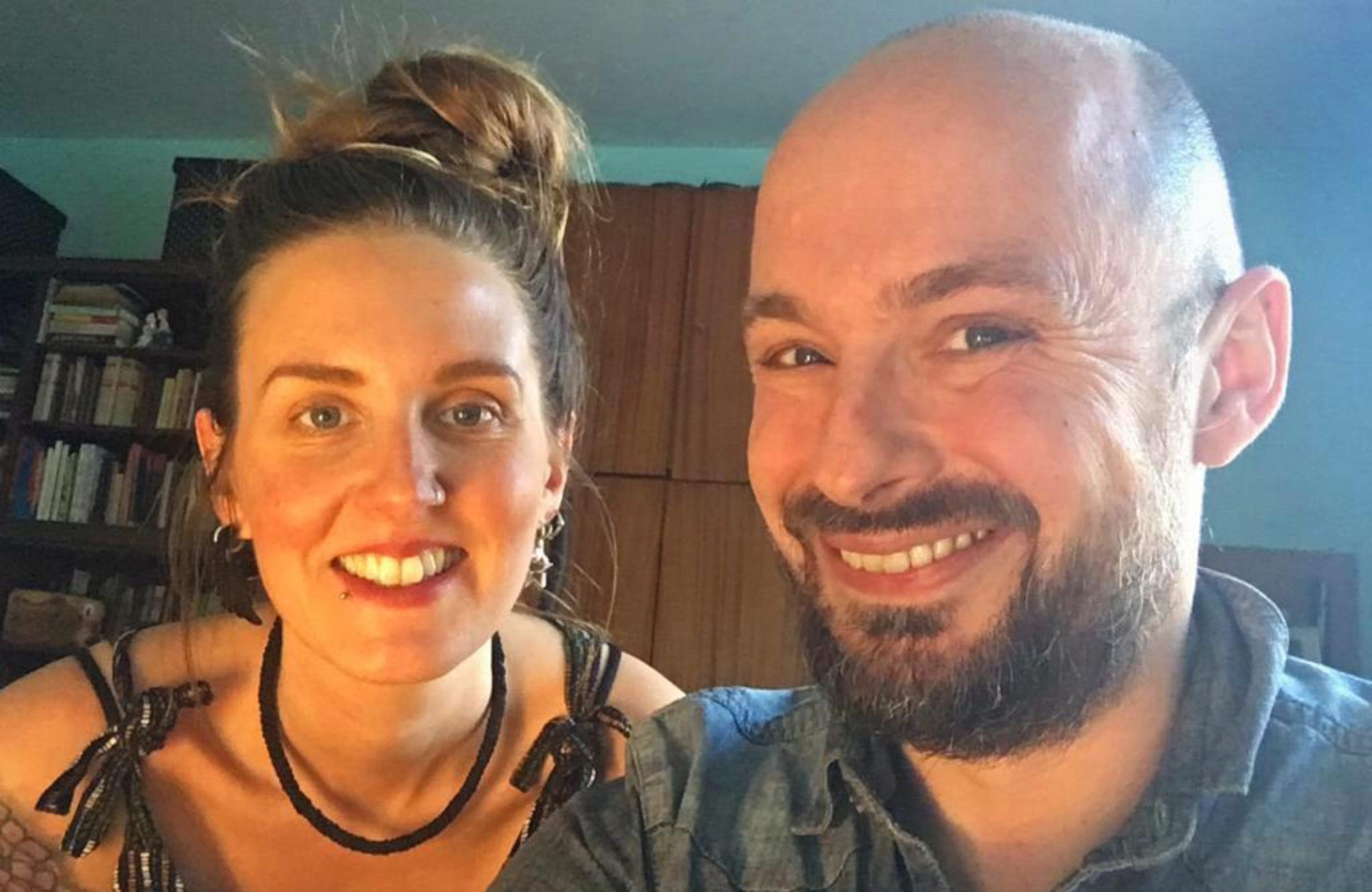“It has been very easy to connect with great people and to make friends – probably easier than in any other country we’ve lived in”
Edited by Lindsay Martin.
We came to Sofia in December 2019 to work on various literary projects. Hannah is a freelance writer with a PhD in creative writing. She’s originally from Leicester in England and arrived in Sofia via Indonesia, Myanmar, Taiwan and Greece.
Currently she is writing lots of creative nonfiction, flash fiction and working on a novella. She also teaches via the Wind&Bones project that she co-directs (more later on) and occasionally at Sofia University.

Will’s background is in anthropology and philosophy (where he did his PhD). He’s written around 12 books (fiction, nonfiction and for children), and worked all over the place teaching in higher education: in the UK, in China, in Myanmar and now in Bulgaria. He’s the other half of Wind&Bones.
One of the reasons we chose Sofia is that Will has a long history with Bulgaria: in 2012 he wrote a novel set here called The Descent of The Lyre. And we had both visited before. In 2018 we came to do some teaching in Varna and then a mini writing residency at the Literature and Translation house in Sofia.
Before we moved here, we were across the border in Thessaloniki. We did some teaching with refugees there and were both involved in various writing projects. As part of research towards his next book (called Hello Stranger, and due out from Granta in 2021), Will got in touch with Ideas Factory and we came to visit and find out about the Baba Residence project. Later they invited us to take part in EmpathEAST 2019 in Plovdiv: a forum for empathy-driven social change.
It was clear that there were a lot of interesting grassroots organisations carrying out interesting and worthwhile initiatives and people were very welcoming and interested in collaborating with us (as well as being our friends), so that’s why we moved here.
Here in Bulgaria, we are running projects through Wind&Bones, our community interest company that explores the crossing-places between creativity, writing and social justice.
We deliver intensive workshops, talk series and projects on creative writing, effective communication, social justice, equality and activism in academic, community and corporate settings. Our most recent courses have included writing memoir and writing and activism. We also set up a weekly writers and activists drop-in in collaboration with Greenpeace Bulgaria (who are brilliant to work with): until the COVID19 lockdown, we met weekly in Greenpeace’s Magnet community space, for an evening of writing, discussion, activism and fun, with up to twenty-five participants.

We also offer educational consultancy globally to NGOs, educational institutions, and arts and community organisations. Through our Wind&Bones work we also keep busy with one to one mentoring and coaching for writers at any stage of their writing careers.
And we shouldn’t forget to mention we’ve recently been teaching some fabulous students at Sofia University who are on the MA programme in English and American studies.
We arrived here in November, so one thing that surprised us when we arrived was the extent of the pollution levels over the winter. Will was used to this from China, but it was sad to see Bulgaria catching up. We understand there is a serious issue with fuel poverty here and this, in part, contributes to the pollution problem. It’s awful to think that people have to burn rags, rubbish and plastic to stay warm. There is clearly a poor safety net here for people in need and that’s very sad.
But most of the surprises here in Bulgaria have been good. It was Hannah’s birthday in March and she received such sincere and sweet birthday messages from Bulgarian friends that she almost cried. There’s a real sincerity to people we’ve met here in Bulgaria — more than almost anywhere else we’ve been — and that is very lovely indeed.
One of many great things about Bulgaria is the food. We’ve been slowly getting to know the small, tucked-away places. And we have developed a particular obsession with hunting out the best banitsa. So we’ve been making a mental banitsa-map of Sofia, as well as learning how to make it at home. Will doesn’t yet have baba-level skills with making banitsa, but he is getting there.
It takes time to adjust to the culture of a new place. One thing we noticed early on is that Bulgarian men don’t smile often, and that was initially slightly disconcerting. One night we went to a very cheap restaurant on the outskirts of town, and struggled through with our poor language skills (the menu was handwritten in Bulgarian). We were convinced the owner hated us, or even wanted to kill us. But then at the end of the evening, when we paid the bill, he asked if we enjoyed the food, and gave us the biggest smile. This happens a lot: you talk to people, and they don’t smile much; but then at the end of a conversation there is a sudden smile, a laugh and a slap on the back and it is very clear that you are welcome and amongst friends.
Sofia is small enough to feel like a community, and big enough to feel like a busy city. We have found both Bulgarians and fellow immigrants in Sofia to be very welcoming.
It has been very easy to connect with great people and to make friends – probably easier than in any other country we’ve lived in (including England). So we have lots more friends since we moved here. There is so much warmth and openness.
We wouldn’t consider moving back to the UK at the moment. The current government has inflicted considerable harm in Britain over the past ten years with their austerity policies and with Brexit. Their poor handling of COVID19 has also been catastrophic. Britain feels quite a strange and problematic place at the moment. There will be a lot of work to be done there in the future to help repair this damage, and maybe we would go back to help with that, but at the moment we feel like we need a break from being there.
As for where we might live if we weren’t here in Sofia, we would both love to spend more time in Taiwan. We visited briefly a year or so ago and absolutely fell in love with the place. Taiwan is the first nation in Asia to have marriage equality, and in terms of gender equality the country ranks as eighth most 'equal' in the world—and number one in Asia. We visited the museum of literature in Tainan when we were there, and we were really impressed by the acknowledgment of different communities in their contributions to the literary cannon: ethnic minorities, young people, women and the LGBTQI communities. It’s also stunningly beautiful: mountains, beaches and cute cities, has great food, and Will is a Chinese speaker, so that is a big pull as well.
Finally, if we were asked for advice for those newly arrived in Bulgaria (other than “eat banitsa”), we would say you should definitely visit the clothes shops where you buy items by weight. We absolutely love them! Also look out for the great work of Meeting Points if you like food and friendship, and the Rainbow Hub if you’re LGBTQI or an ally.
In fact, more than anything else, just start connecting. One thing that is brilliant about Bulgaria is the sheer diversity of small, grassroots organisations that are acting for positive change, and who are open to collaboratively building a better future. It is really incredibly heartening, and it has enriched us both.
